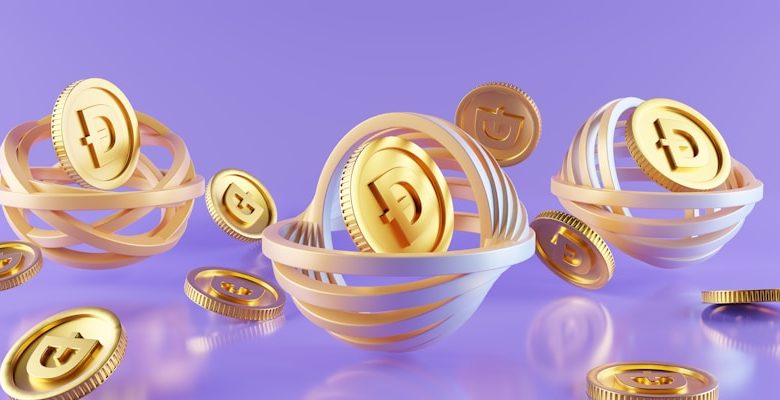Understanding the Role of Oracles in the Crypto Ecosystem

- Introduction to Oracles in the Crypto Ecosystem
- The Importance of Oracles in Decentralized Finance
- How Oracles Bridge the Gap Between Blockchain and Real-World Data
- Challenges Faced by Oracles in Providing Accurate Data
- Popular Oracle Networks and Platforms in the Crypto Space
- The Future of Oracles and Their Impact on the Crypto Industry
Introduction to Oracles in the Crypto Ecosystem
Oracles play a crucial role in the crypto ecosystem by providing external data to smart contracts on the blockchain. These decentralized sources of information are essential for enabling blockchain platforms to interact with real-world data. Oracles act as intermediaries that fetch and verify data from off-chain sources, such as websites, APIs, and IoT devices, and deliver it to smart contracts.
By bridging the gap between the blockchain and external data sources, oracles enable smart contracts to execute predefined conditions based on real-time information. This capability opens up a wide range of use cases, including decentralized finance (DeFi), supply chain management, insurance, and more. Without oracles, smart contracts would be limited to processing only the data available on the blockchain, hindering their potential for widespread adoption.
However, the use of oracles also introduces challenges such as data reliability, security, and centralization risks. As oracles act as trusted third parties, they are vulnerable to manipulation or inaccuracies in the data they provide. To address these issues, various oracle platforms have emerged, offering different solutions to enhance data integrity and decentralization in the crypto ecosystem.
The Importance of Oracles in Decentralized Finance
Oracles play a crucial role in decentralized finance (DeFi) by providing external data to smart contracts on the blockchain. This data is essential for DeFi applications to function properly and make automated decisions. Without oracles, smart contracts would be limited to using only the data available on the blockchain, which is often not sufficient for complex financial transactions. Oracles act as bridges between the blockchain and the real world, allowing smart contracts to interact with real-world data such as prices, events, and other information.
In the world of DeFi, accurate and reliable data is paramount. Oracles help ensure that the data used by smart contracts is trustworthy and up-to-date. By connecting smart contracts to various data sources, oracles enable DeFi applications to access a wide range of information, including market prices, weather conditions, sports scores, and more. This data is used to trigger certain actions within the smart contract, such as executing a trade, issuing a loan, or settling a bet.
One of the key challenges in decentralized finance is the issue of data quality. Since oracles are responsible for providing external data to smart contracts, it is essential that they are secure and resistant to manipulation. Malicious actors could potentially exploit vulnerabilities in the oracle system to feed false data to smart contracts, leading to financial losses or other negative consequences. To address this issue, developers are working on various solutions to enhance the security and reliability of oracles in DeFi.
Overall, oracles play a vital role in the DeFi ecosystem by enabling smart contracts to access external data and interact with the real world. As decentralized finance continues to grow and evolve, the importance of oracles in ensuring the accuracy and reliability of data will only increase. Developers and stakeholders in the DeFi space must continue to innovate and improve oracle technology to support the ongoing development of decentralized financial applications.
How Oracles Bridge the Gap Between Blockchain and Real-World Data
Oracles play a crucial role in bridging the gap between the blockchain world and real-world data. They serve as a link that enables smart contracts to interact with external sources of information in a secure and reliable manner. By providing data feeds to decentralized applications, oracles help blockchain systems access information such as price data, weather updates, sports scores, and more.
Oracles act as trusted sources of information, verifying and delivering external data to smart contracts on the blockchain. This functionality is essential for various decentralized applications that require real-time data to execute their processes effectively. Without oracles, smart contracts would be limited to operating within the confines of the blockchain, unable to interact with external events or information.
One of the main challenges in integrating external data with blockchain systems is ensuring the accuracy and reliability of the information. Oracles address this issue by leveraging cryptographic techniques and consensus mechanisms to validate data before it is transmitted to smart contracts. This process helps prevent data manipulation or tampering, safeguarding the integrity of the blockchain ecosystem.
Overall, oracles play a critical role in enhancing the functionality and usability of blockchain applications by enabling them to access real-world data. Their ability to securely connect blockchain networks with external sources of information opens up a wide range of possibilities for decentralized applications across various industries. As blockchain technology continues to evolve, the role of oracles is expected to become even more prominent in facilitating seamless interactions between on-chain and off-chain data sources.
Challenges Faced by Oracles in Providing Accurate Data
Oracles play a crucial role in providing accurate data to smart contracts in the crypto ecosystem. However, they face several challenges in maintaining the integrity and reliability of the information they deliver.
- One of the main challenges faced by oracles is the issue of data manipulation. Bad actors may attempt to tamper with the data being fed into smart contracts, leading to inaccurate outcomes.
- Another challenge is the risk of downtime or technical failures. Oracles rely on external data sources, which may experience outages or disruptions, resulting in delays or errors in data delivery.
- Security is also a significant concern for oracles. As intermediaries between off-chain data and on-chain smart contracts, they are vulnerable to attacks or breaches that could compromise the accuracy of the information they provide.
- Moreover, there is the challenge of scalability. Oracles need to handle a vast amount of data from various sources efficiently, without sacrificing speed or accuracy.
- Lastly, the issue of trust and reputation is crucial for oracles. Establishing credibility and reliability in the eyes of users and smart contract developers is essential for their success in the crypto ecosystem.
Popular Oracle Networks and Platforms in the Crypto Space
In the crypto space, there are several popular networks and platforms that serve as oracles, providing crucial external data to smart contracts on blockchain networks. These oracles play a vital role in enabling decentralized applications to interact with real-world information effectively. Some of the leading oracle networks and platforms in the crypto ecosystem include:
1. Chainlink: Chainlink is one of the most well-known oracle networks in the industry. It allows smart contracts to securely connect with off-chain data sources, APIs, and payment systems. Chainlink’s decentralized network of nodes ensures data accuracy and reliability.
2. Band Protocol: Band Protocol is another prominent oracle platform that aggregates and connects real-world data to smart contracts. It offers a wide range of data types, including price feeds, weather information, and sports scores, making it a versatile solution for developers.
3. Augur: Augur is a decentralized prediction market platform that also functions as an oracle service. It allows users to create and participate in prediction markets on various topics, providing valuable insights and data points for smart contracts.
4. Tellor: Tellor is a decentralized oracle network that focuses on providing high-value off-chain data to blockchain applications. It uses a network of staked miners to retrieve and verify data, ensuring its accuracy and integrity.
5. DIA: DIA (Decentralized Information Asset) is a platform that specializes in oracles for financial data. It offers a wide range of data feeds, including price oracles for cryptocurrencies, commodities, and traditional assets, making it a valuable resource for DeFi projects.
These oracle networks and platforms play a crucial role in bridging the gap between blockchain technology and the real world. By providing reliable data feeds to smart contracts, they enable a wide range of decentralized applications to function effectively and securely. Developers can choose from a variety of oracle solutions based on their specific needs and requirements, ensuring the smooth operation of their projects in the crypto ecosystem.
The Future of Oracles and Their Impact on the Crypto Industry
Oracles play a crucial role in the crypto industry by connecting blockchain networks with real-world data. As the demand for decentralized applications continues to grow, the need for reliable and secure oracles becomes increasingly important. The future of oracles looks promising, as more projects are being developed to enhance their functionality and efficiency.
One of the key advancements in oracle technology is the integration of multiple data sources. By aggregating information from various oracles, developers can ensure a higher level of accuracy and reliability in their smart contracts. This not only reduces the risk of manipulation but also enhances the overall security of the blockchain network.
Another trend in the future of oracles is the use of advanced algorithms to verify and validate data. By implementing machine learning and AI technologies, oracles can improve their ability to detect fraudulent or inaccurate information. This can help prevent potential security breaches and ensure the integrity of decentralized applications.
Furthermore, the integration of decentralized finance (DeFi) protocols with oracles is expected to revolutionize the crypto industry. By enabling seamless access to external data, DeFi platforms can offer a wider range of financial products and services to users. This will not only expand the scope of decentralized applications but also attract more participants to the crypto ecosystem.
Overall, oracles are set to play a transformative role in shaping the future of the crypto industry. With continuous innovation and development, these decentralized data providers will continue to enhance the security, reliability, and efficiency of blockchain networks. As the demand for decentralized applications grows, the importance of oracles will only increase, paving the way for a more interconnected and secure crypto ecosystem.



